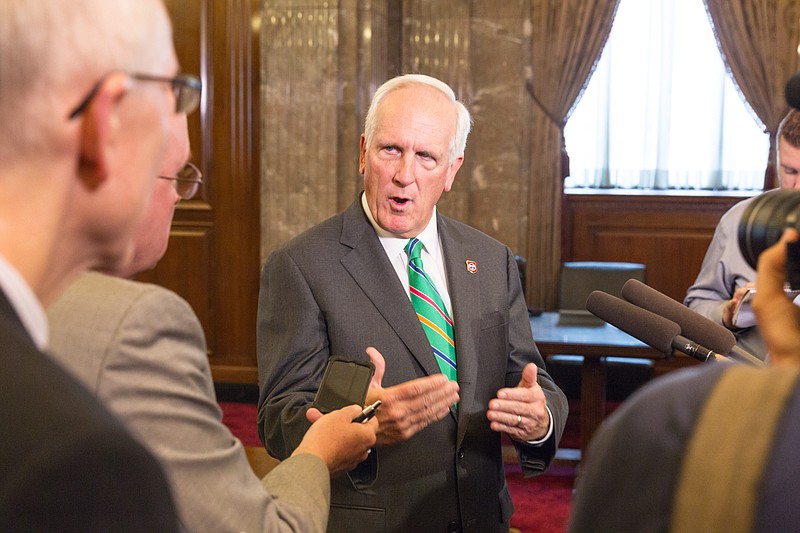NASHVILLE - A new legal opinion from State Attorney General Herbert Slatery says a proposed amendment to the Tennessee Constitution regarding public school funding will not adversely impact the state's equal protection provisions.
The opinion was requested by Rep. Bill Dunn. The Knoxville Republican's proposed amendment makes a change to a section requiring state lawmakers to provide for the maintenance and support of a "system of free public schools" and, he thinks, allow lawmakers to spend what they wish.
Opponents to Dunn's proposal have raised objections that it could impact equal protection provisions elsewhere in the document.
Dunn has maintained the amendment would not and Slatery's opinion supports his view.
"The proposed amendatory language does not change the meaning of the public schools clause (article XI, § 12) of the Tennessee Constitution, and would not affect the equal protection provisions of article I, § 8 or article XI, § 8, of the Tennessee Constitution, which would still limit, as they do now, the authority of the General Assembly to determine how to provide for free public education in Tennessee pursuant to the public schools clause," the opinion says.
The state Constitution's equal protections as well as similar ones in the U.S. Constitution provided the basis of successful school-funding lawsuits in the 1990s and early 2000s in which smaller, largely rural systems complained they were treated unfairly by the state.
Dunn introduced the proposed change after school systems in Hamilton and six nearby counties last year filed a school funding lawsuits charging the state is short-changing all districts on funding. Shelby County schools filed its own suit.
A Davidson County judge earlier this year allowed the Hamilton County suit to proceed, rejecting Slatery's effort to have it dismissed.
Hamilton County and the other systems contend Article XI, Section 12 of the state Constitution requires the state to provide public schools adequate support.
The provision now says the "General Assembly shall provide for the maintenance, support and eligibility standards of a system of free public schools."
That incensed a number of Republican lawmakers, including Dunn. Last year, they passed a law that would require any school system joining the Hamilton County suit to pay the state's legal fees if they lose the court case. Critics charge it was a blatant attempt to intimidate poorer systems.
Dunn had his own ideas and wants new language allowing state lawmakers to devote as much - or as little - funding as they wish to public education.
Dunn's House Joint Resolution 493, which Tennessee voters would ultimately have to approve before it became part of the Constitution, reads: "The General Assembly as the elected representatives of the people shall provide for the maintenance, support and eligibility standards of a system of free public schools in such manner as the General Assembly may determine."
